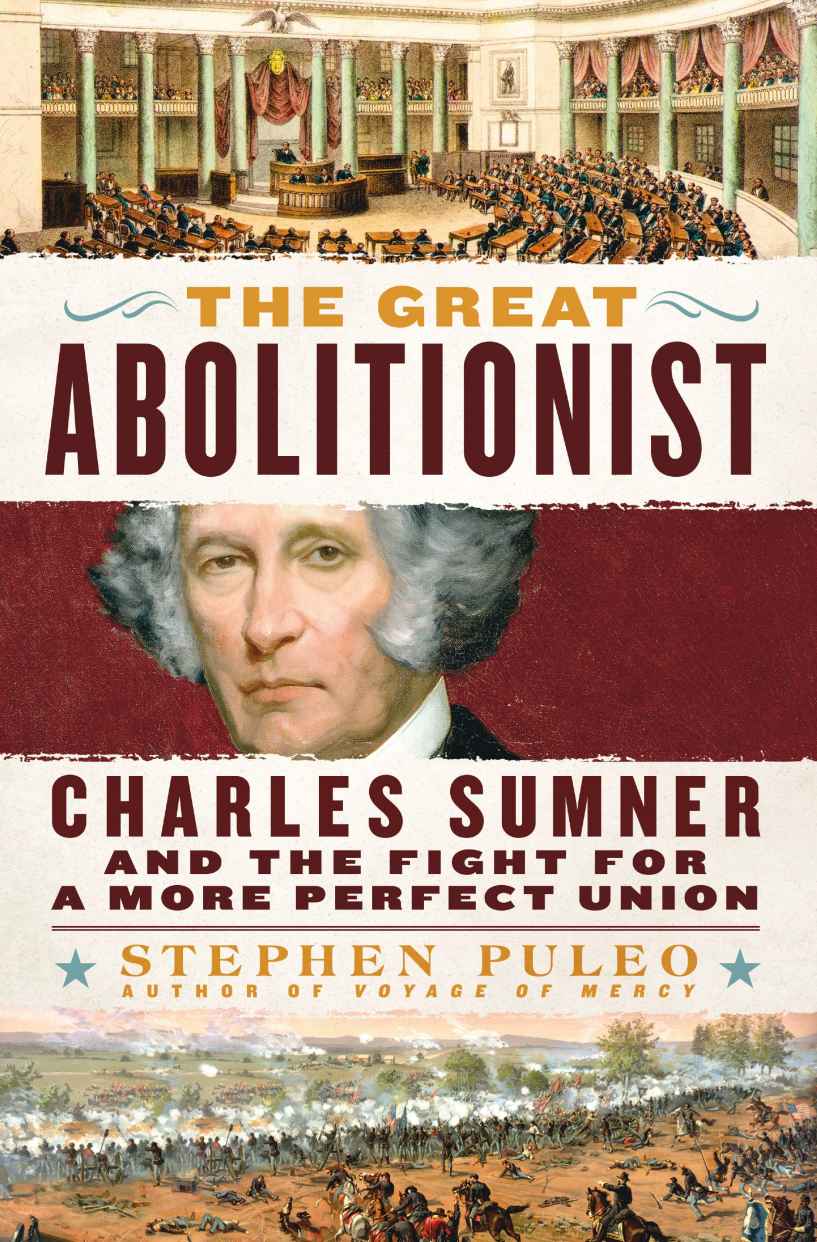Mr. Book just finished The Great Abolitionist: Charles Sumner And The Fight For A More Perfect Union, by Stephen Puleo.
Sumner’s place in history always seems to be limited to him being the victim of a vicious attack on the floor of the Senate by Preston Brooks. But what this book shows is there was far more to his career and that should not be what he is remembered for. Sumner was one of the leading abolitionists of the time. Puleo did an excellent job portraying that side of this important Senator’s career.
In addition to his career in the Senate, the other highlight of this book was the case of Roberts v. City of Boston, which Sumner argued in front of the Massachusetts Supreme Court in 1849 and decided in 1850. Sumner argued in favor of desegregating the Boston schools. A Boston newspaper called his argument “clear and convincing” and presented it in its entirety on the front page.
Sumner lost the case unanimously, with Chief Justice Shaw introducing the infamous “separate but equal” phrase into American jurisprudence. But, despite that loss, several years later, the legislature abolished segregated schools in 1855. And, despite the loss, Thurgood Marshall “found inspiration for his Brown v. Board of Education argument in Charles Sumner’s groundbreaking 1849 argument in the Sarah Roberts case.”
Another very fascinating aspect of Sumner’s career was the 15th Amendment. He was a huge proponent of the 13th and 14th Amendments, but could not enthusiastically support the 15th. Sumner had attempted to go much further and ban all voting restrictions, including property qualifications, literacy tests and even gender discrimination. When his efforts there failed, he considered what what was left to be too little for his liking.
A great feature of history books is the little hidden factual tidbits that they always contain. One great example from this book is the fact that, in the 1850s, South Carolina required candidates for Congress to own at least 10 slaves in order to be eligible to run.
I give this book an A. Goodreads requires grades on a 1-5 star system. In my personal conversion system, an A equates to 5 stars. (A or A+: 5 stars, B+: 4 stars, B: 3 stars, C: 2 stars, D or F: 1 star).
This review has been posted at my blog, Mr. Book’s Book Reviews, and Goodreads.
Mr. Book finished reading this on September 10, 2024.


